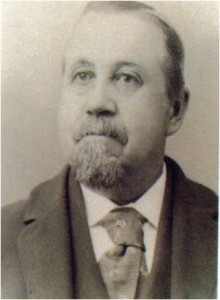John Washington
John Washington was “born enslaved” in Fredericksburg on May 20, 1838. As the Union Army approached Falmouth and Fredericksburg on April 18, 1862, John M. Washington, a 24 year old Black man working in a Fredericksburg hotel, left his enslaver, walked along the Rappahannock River until he was directly across from Falmouth Beach. There Union soldiers ferried him across the river. In his memoir, penned in 1873, he recalled his first night of freedom by stating, “I would never be a slave no more. I felt for the first time in my life that I could now claim Every cent that I should work for as my own. I began now to feel that life had a new joy awaiting me.”
John Washington was among the first of over 10,000 enslaved Black people in this area who emancipated themselves during the spring and summer 1862. According to a report by W.W. Wright, the Engineer and Superintendent of the US Military Railroad, these now free people boarded trains at the Fredericksburg and Falmouth stations to travel to Aquia Landing where they boarded ships for the journey to Washington, DC. Prior to the Emancipation Proclamation, issued on January 1, 1863, Black people who had self-emancipated were known as “contraband” – a term that identified them legally not as free people but as property seized in war.
John Washington worked for Union army general Rufus King before moving himself to Fredericksburg. His wife, Annie, who had remained in Fredericksburg joined him by 1863 and they, along with other once enslaved people from this area, established Shiloh Baptist Church just north of the White House. John and Annie had x children and John directed the church’s Sunday schools for a dozen years. In 1913, John Washington moved to Cohasset, Massachusetts, to live with their son. He died in 1918.
In 1872, just seven years after his emancipation, a thirty-four-year-old John penned the story of his life, calling it “Memorys of the Past.”

